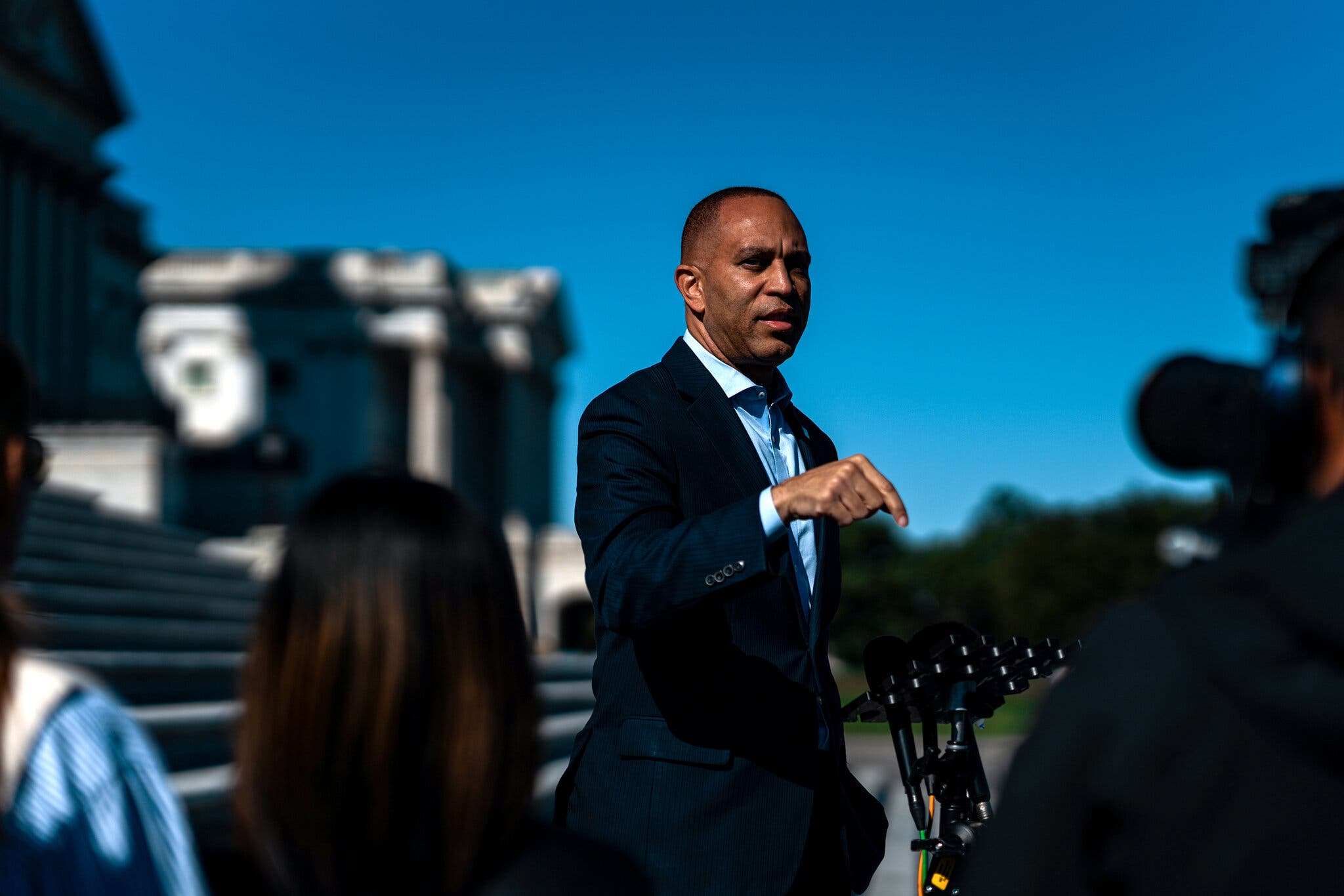CLINTON, N.Y. — Christopher P. Moynihan, 34, an upstate New York man previously pardoned by former President Donald Trump for his involvement in the January 6 Capitol attack, was arrested last week after allegedly sending threatening messages targeting House Democratic leader Hakeem Jeffries. According to authorities, Moynihan’s texts indicated he intended to harm Jeffries during a scheduled event in New York City.
Local prosecutors in Dutchess County say Moynihan sent messages claiming, in effect, that Jeffries “must be eliminated” and that he was willing to take violent action despite personal consequences. The statements allegedly placed the recipient of the messages in reasonable fear for the congressman’s safety. Jeffries appeared at the Economic Club of New York in Manhattan shortly after the messages were sent.
Moynihan, who lives about 50 miles east of Syracuse, has a criminal history that includes both petty offenses and drug-related issues. Court records indicate he has worked in a variety of jobs, including plumbing, carpentry, and restaurant work, but has faced multiple arrests over the years. Authorities describe him as having a pattern of criminal behavior that escalated during the Capitol breach.
During the January 6 attack, Moynihan was reportedly among the first rioters to breach the Capitol building. Prosecutors allege he pushed past police lines, entered the Senate chamber, and rifled through items on a senator’s desk. He was later convicted of obstructing a congressional proceeding and several related misdemeanors, receiving a 21-month prison sentence. However, he was ultimately pardoned by former President Trump as part of a sweeping clemency action covering nearly 1,600 individuals involved in the attack.
This new arrest marks a notable development, as Moynihan appears to be the first pardoned Jan. 6 participant charged with threatening an elected official following Trump’s clemency grants. While other pardoned rioters have faced legal trouble for unrelated offenses since their release, Moynihan’s case is being treated seriously because it directly involves a sitting member of Congress.
State police confirm that Moynihan is being held in the Dutchess County jail in lieu of bail and is scheduled to appear in court later this week. The charge, classified under New York law as making a terroristic threat, carries serious legal penalties. Prosecutors must demonstrate that Moynihan’s communications created a credible fear of harm to another person, which is central to proving the felony offense.
Experts in political violence have warned that pardons for individuals involved in politically motivated crimes could increase the likelihood of further threats or actions against public officials. Law enforcement agencies remain vigilant, monitoring potential risks posed by individuals previously involved in the Capitol attack, especially those with a history of escalating criminal behavior.
Moynihan’s case also highlights concerns about radicalized individuals returning to society after high-profile convictions and pardons. While the pardons removed the federal consequences for his earlier crimes, the alleged threats against Jeffries demonstrate that legal accountability for new offenses remains intact and continues to protect elected officials.
Local authorities have not released details regarding the recipient of Moynihan’s messages, but police confirm that the communication triggered immediate investigative action. State and federal officials are coordinating to ensure the safety of public figures and to address the potential threat.
This arrest underscores the ongoing challenges law enforcement faces in monitoring politically motivated threats while balancing the legal rights of individuals. The case against Moynihan is ongoing, and his next court appearance will determine the trajectory of the investigation. Meanwhile, authorities continue to caution that threats against elected officials are taken seriously and prosecuted vigorously.
As courts process this case, the broader debate over pardons and their potential unintended consequences continues, particularly when pardoned individuals engage in further illegal behavior. Moynihan’s arrest serves as a stark reminder that prior clemency does not shield someone from prosecution for new crimes, especially those involving threats to public safety.

